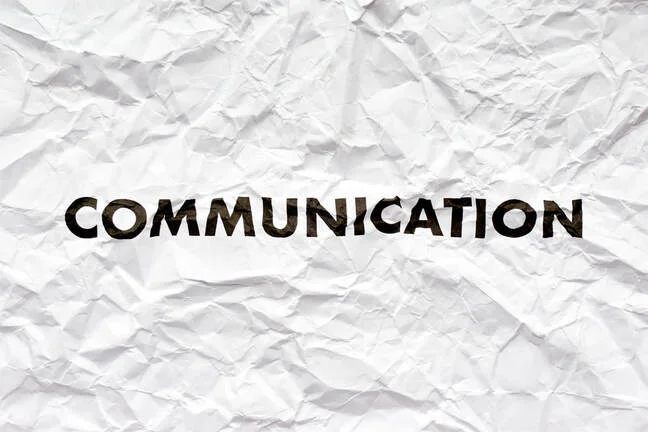How many times have you left a conversation feeling good about it only to find out later that the other party didn’t understand, wasn’t on the same page, or simply had a very different take on your conversation?
In these busy times, we are all trying to connect the dots. How does everything fit together? How do you make sense of priorities? So much is coming at each of us, all the time. Whether you are a leader or staff, you can’t manage your day if you can’t communicate effectively.
No matter what your role is, excellent communication skills are a must.
At the end of the day, the art of listening, one of the most important parts of communication, is crucial to all relationships but most especially to successful relationships.
The problem then is that we think we are better listeners than most of us really are. Why is that?
When we think about communication, we usually think about clearly sharing our point-of-view, usually by talking. But the most important part of communication is listening…with the intent to understand.
Can you think of times when you were not listening with the intent to understand? Sometimes you just want the other person to finish what they are saying so you can talk, sometimes you are in an argument and you are thinking of your next words before they have finished theirs.
Let’s look at the key components of listening...
Listening is not just what you hear, it is the total of what you understand and what you remember. That means you must be present, right here, in this moment.
This is important because being heard means being taken seriously. If you are not present, not really listening than you are not taking the other person seriously and they will not feel listened to...Think about that.
Listening is such a deep component of communication and many of us could significantly improve our listening skills.
As it turns out, according to a study at the University of Missouri, listening is our most commonly used communication skill accounting for 45% of communications vs. speaking which is only 30%, reading at 16% and writing at 9%. This was a big surprise to me!
Unfortunately, most of us are very poor and inefficient listeners. Why is that? There are several reasons...
...the first is that listening, while the most frequently used component of communication, it is the one we have had the least training in.
Many of us have had training in reading more quickly, or in improving writing skills. Some of us have had training in being better speakers, publicly or in the work setting, but how many of you have or know of people who had had training in being a better listener? Some, but not many.
The second reason is that most of us can think faster, much faster than someone else can speak.
Most people speak 125-175 words per minute but the average number of words you're able to listen to per minute is around 450. Even for people like me who talk fast, this is a problem. As a result, our minds naturally wander when someone else is talking which impairs our listening ability.
Unless we make a concerted effort to listen intently.…. that means listening with the intent to understand, our minds do what they do, they naturally wander.
Paying attention is very hard work and it takes intention! As if that isn’t challenging enough, very commonly, many of us are thinking about our response before the other person has finished their thought…. leaving us with incomplete information.
Let’s go through some scenarios to see if you’ve experienced any of these phenomena when it comes to listening:
Leaping to the conclusion that a subject is dull, or you know everything about it can cause your brain to tune out the information being provided
Tending to dismiss what the speaker says because of the speaker’s delivery or appearance.
Allowing distractions—room temperature, lighting, noises
Reacting emotionally to what a speaker says, being triggered in some way that is not necessarily factual
Listening only to the facts, not overall understanding
Allowing your mind to wander if speaker talks slowly or just as part of the natural process
Are you or have you ever been guilty of any of these? I know I have…. It’s okay… we’re only human. Life is not about perfection, it’s about progress.
Being aware that we need to hone our listening skills doesn’t make us bad communicators. The fact is it makes us pretty darn good ones – self-awareness is the first step in growth – always has been and always will be.
Lesson learned: Communicate better with one another!

